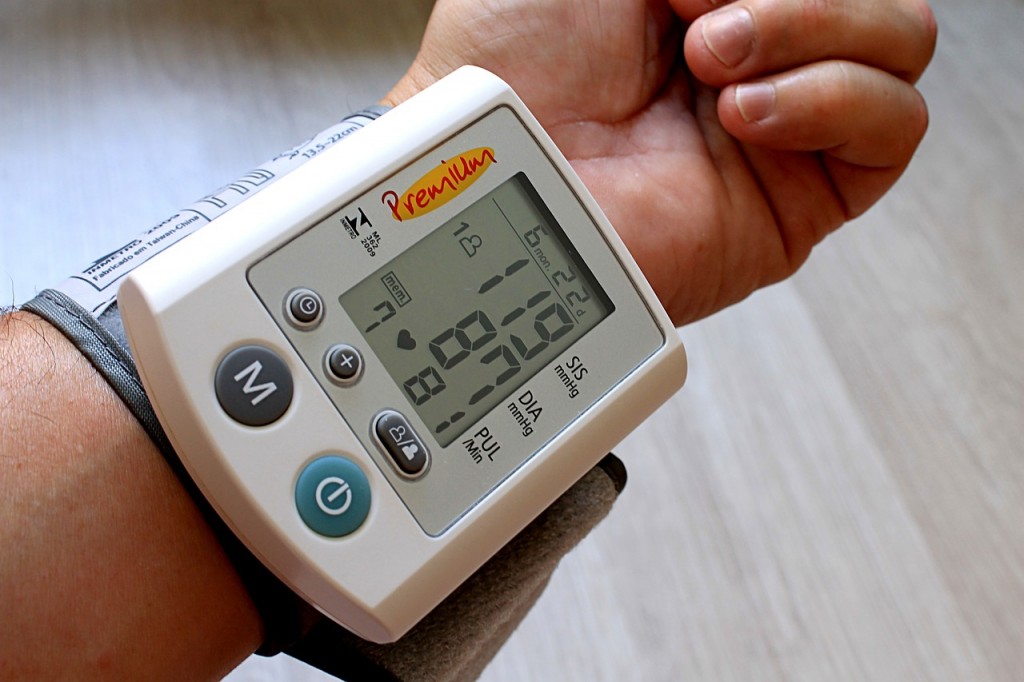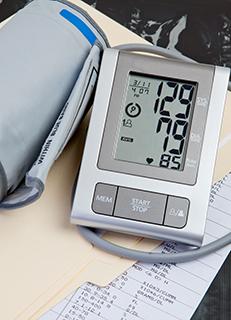May 2006: A new review of evidence suggests that a "stepped-up" care approach can lower blood pressure for patients who haven't achieved good control of their hypertension.
"This is congruent with evidence from randomized trials that have really encouraged physicians to adhere to protocols and systematically care for people with chronic medical conditions such as hypertension," said review author Tom Fahey.
Fahey is a family physician with the Tayside Centre for General Practice in Dundee, Scotland, and a hypertension researcher. He said stepped-up care means a physician has mapped out a clear plan to adjust hypertension treatment � and blood pressure-lowering medication � when a patient's health goals are not met.
The review of 56 studies found that the systematic care model resulted in lower blood pressure and better hypertension control versus other tested interventions such as patient or physician education, asking patients to monitor their own blood pressure or appointment reminders.
The review appears in the current issue of The Cochrane Library, a publication of The Cochrane Collaboration, an international organization that evaluates research in all aspects of health care. Systematic reviews draw evidence-based conclusions about medical practice after considering both the content and quality of existing trials on a topic.
Continue Reading Below ↓↓↓
Seven of the studies tested systematic, stepped-up care for patients on antihypertension drugs. After pooling the evidence, Fahey and his team found varied results, but the data are largely driven by one very large study that uncovered substantial reductions in both systolic and diastolic blood pressure � a measure of the force that blood exerts on the walls of arteries as it travels from the heart to different parts of the body.
That study of more than 10,000 people across the United States resulted in a 6.4 percent overall death rate after five years for hypertension patients who received stepped-up care versus a 7.8 percent overall death rate for patients who received usual care.
"The Hypertension Detection and Follow-up trial showed that if you improve the intermediate outcome of improving high blood pressure then the prevention of strokes and heart attacks does occur," Fahey said.
A stepped-up approach reorganizes the way health care is delivered, allowing physicians to keep tighter tabs on their patients with hypertension. In the United Kingdom, that typically means patients taking antihypertension medication are enrolled in a registry of people who will receive intensified monitoring and follow-up care.
"I always say to patients, �If you are going to start taking these drugs you might as well try to accrue the benefits that we know we can give you. And to do that, I have to have a system of care that will allow me to register you, recall you and review you,'" Fahey said.
George L. Bakris, M.D., a hypertension researcher in Chicago, said systematic hypertension care is uncommon in United States. "The academic physicians are starting to do this more, the specialists are doing it, the generalists, as far as I know, are not," he said.
Bakris, a professor of preventive medicine at Rush University Medical Center, said the Cochrane results jibe with what most physicians already know. But he cautions that blood pressure reductions achieved in the tightly controlled environment of a clinical trial are consistently much better than reductions achieved in the harried environment of the typical doctor's office.
"When Joe Blow comes in and you find high blood pressure, you start treating it, you get him on medicine, and as far as you're concerned you're OK. There's no urgency," Bakris said, "versus the environment where a physician participating in a clinical trial is told his patient's blood pressure better be in a certain range."
Fahey said having a dedicated, systematic hypertension-care plan in place may help doctors avoid delays in responding to patients who are not improving.
"With high blood pressure, doctors think, �Well, I'll measure it in a month's time,' which is just deferring what should be proper clinical practice," Fahey said. In the United States, researchers who study chronic illnesses like heart disease and diabetes call this phenomenon "physician inertia."
Continue Reading Below ↓↓↓
Bakris said a constellation of time, patient and physician pressures can keep a doctor from reacting promptly when a person hasn't gotten his or her hypertension under control. Pressure comes from patients who don't want to take medication, especially when they aren't feeling any symptoms, Bakris said, and time-crunched physicians often don't fully explain the benefits, common side effects and risks of antihypertension drugs.
Source: HBNS










